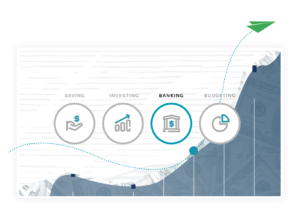Details Are Part of Our Difference
Embracing the Evidence at Anheuser-Busch – Mid 1980s
529 Best Practices
David Booth on How to Choose an Advisor
The One Minute Audio Clip You Need to Hear
Category: Uncategorized
Moving on Up

We’re often asked what separates us from other firms. Our answer is our people – we believe we have a unique group of individuals who collectively make for a fantastic team to serve our clients.
We are excited to announce that two members of our team have earned promotions:
Abby Wiss (Crimmins) – Abby has been promoted from Associate Advisor to Service Advisor. Abby has been with our firm for five years and continues to provide an especially high level of service to our clients – whether that is helping with something like money movements or thinking through more complicated scenarios like Roth conversions. For more about Abby, click here.
Matt Luzecky – We have promoted Matt from Associate to Associate Advisor. In Matt’s 3+ years with our firm, he has shown he is an integral part of the client service team… and always ready with a joke! His ability to look at client situations and internal processes differently allows us to continue improving the service level we provide to our clients. Learn more about Matt here.
Congrats to both team members on well-deserved promotions!
Compounding Wisdom: Banking 101

This is the latest in our series of introductory “101” financial guides. Each guide reveals a set of wise actions as well as a set of behaviors to avoid. The goal? Help you make smart choices at every turn in your financial road trip. We have seen financial successes exponentially enhanced when wise financial decisions are made repeatedly over a long period. This month’s focus is Banking. Online banking, online banks, and fintech firms are rapidly changing the competitive landscape, so staying up to date can be challenging.
Compound Wisdom Actions
- Good Things Come in Threes – A great start is 1 checking account, 1 savings account for your emergency fund, and 1 savings account for near-term large purchases.
- Know the Fine Print – Understand the fees within your account and how to avoid them.
- Don’t Live on the Edge – Keep a cushion in your checking account to avoid overdrafts.
- Know Where You Stand – With smartphone access and reduced use of checks, it’s easy to know your real balance and there is less need to “balance your checkbook” each month.
- Hold On – Plan ahead so you aren’t surprised when a deposit is placed on hold and the funds are not instantly available.
- Stay Alert – Review your account’s balance and transaction alert settings and update them to match your preferences.
- Stay Safe – Enable two-factor authentication, and never access your bank app on public Wi-Fi.
- Go on Auto-Pilot – Use your checking account as a hub to auto-pay your bills instead of a credit card (which may be reissued every time fraud is suspected).
- Get the Kids Involved – A savings account for a child in middle school can be a great tool to start them off in learning about banking.
- Don’t Simply Pass it Along – Young adults should investigate the low-cost nature of online banks and not just adopt their parent’s brick-and-mortar bank.
- No Interest – While the national banks continue to offer low-interest rates on checking accounts, many online banks pay cashback when you use their debit card, making it a potentially wise choice for younger adults.
Behaviors to Avoid:
- Over-drafting Often – Regular overdrafts signal you are not in control of your finances.
- Surprise, Surprise – Not knowing your balance weekly or even daily can result in a costly surprise.
- Banking Inertia – If your bank is assessing fees or delivering poor service, pull the plug and find a better solution.
- Paying Avoidable Fees – If you are being assessed fees each month, you should ask how to eliminate them.
- Walking Around with Your Emergency Fund – Never use your checking account as a place to save for emergencies – create a dedicated savings account that is less easy to access (aka no debit card).
Feel free to pass this along if you know someone who might benefit from the guidance and look for more from me in this monthly series.
I lead our Hillfolio level client service and planning efforts, learn more about me here and reach out if I can help you put the magic of compounding on your side.
Does Spending Imply Wealth?

Imagine a person who is flashy in the way they spend their money — their cars, their clothes, and their meals. And now, think of someone who is a bit different — someone who orders a McDonald’s breakfast every day and never spends more than $5.
What meaning do you attach to these spending habits? Does one seem richer than the other? If so, which one? If you put this question to your friends, you might be surprised to find differences of opinion.
Some might think the big spender is wealthier, believing you must be wealthy to be able to spend a lot. Others may have the opposite view and insist that someone who spends more has less wealth because spending depletes wealth. Others might tell you that they have no idea because they don’t think there’s a strong relationship between wealth and spending habits.
The concept that I’m circling around is one that my colleagues Heather Barry Kappes, Joe Goldstone, and I have labeled “the belief that spending implies wealth.” In a paper in press at The Journal of Consumer Research, we explore the beliefs people hold about spending and what these beliefs mean for their spending habits.1
What Is the belief that spending implies wealth? Kappes spearheaded this project, which began with the idea that there’s a continuum of beliefs about what spending habits say about someone’s wealth. To determine where a person would stand on this continuum, in one of our studies, we surveyed a nationally representative group of 1,000 people. We asked them to indicate how much they agreed with statements like these:
▪ Spending a lot indicates that someone is wealthy.
▪ If someone isn’t spending much money, they probably don’t have much to spend.
▪ I think people who spend more are wealthier than people who spend less.
While the majority of respondents did not think spending was related to wealth, a third of our participants did. These beliefs were distinguishable from related concepts such as materialism, financial literacy, and self-control. In other words, the belief that spending implies wealth wasn’t interchangeable with other potentially similar concepts.
What Do These Beliefs Mean for Financial Habits? Though there are some negative associations that go along with being super-rich, most people would rather be rich than poor, a sentiment borne out in prior research.2 Because of that, we assume that people are more likely to behave the way that they believe the rich act (to the extent that their financial resources allow). Theoretically, people who have strong “spending implies wealth” beliefs should spend excessively as well.
In another study, we examined over 2 million banking transactions from more than 2,000 customers of a large bank in the United Kingdom. The bank customers’ responses to our questionnaire revealed that those who believe spending was related to wealth were also more likely to spend lavishly on things like jewelry and designer clothes.
We established this relationship independent of age, gender, and income factors that might predict spending habits. We also found that those who believe strongly that spending implies wealth were more financially vulnerable and experienced lower financial well-being than those who didn’t hold such beliefs. Of course, this link is just a correlation.
Can we influence attitudes about spending? In two other studies, we asked participants to read articles with headlines like “Big spenders are often wealthier” versus “Big spenders are often less wealthy.” We found the articles influenced spending intentions and actual behaviors. When we created stronger beliefs in the idea that spending implies wealth, research participants were less likely to want to invest or save and more likely to want to spend.
Taken together, this research shines a light on what might have been an overlooked aspect of financial attitudes and behavior. There’s no shortage of policy work — and work from financial advisors — that tries to educate consumers on how to wisely spend and save their money. Although there may be some value in doing so, it may also be prudent to attempt to modify beliefs about what spending means.
As it turns out, Warren Buffett goes to McDonald’s for breakfast every day and he never spends more than $5. We all have different relationships with money that are influenced by countless factors. But stopping to ask ourselves and our loved ones questions about the meaning of spending may prompt eye-opening discussions. It might even spur changes in our behavior.
Written by Hal Hershfield, Ph.D. Consultant to Avantis Investors. Hal is a Professor of Marketing and Behavioral Decision Making in the Anderson School of Management at the University of California, Los Angeles, and a consultant to Avantis Investors. His research asks, “How can we help move people from who they are now to who they’ll be in the future in a way that maximizes well-being?” Dr. Hershfield is a past podcast guest on Take the Long View with Matt Hall.
Endnotes 1Heather Barry Kappes, Joe J. Gladstone, and Hal E. Hershfield, “Beliefs about Whether Spending Implies Wealth,” Journal of Consumer Research 48, no. 1 (June 2021): 1-21. 2Suzanne R. Horwitz and John F. Dovidio, “The rich — love them or hate them? Divergent implicit and explicit attitudes toward the wealthy,” Group Processes & Intergroup Relations 20, no. 1 (January 2017): 3-31.

